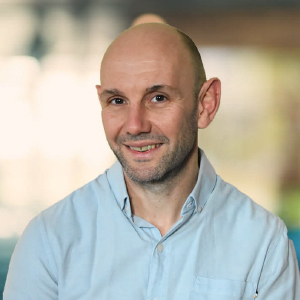Medical negligence
Medical negligence FAQs
The most commonly asked medical negligence claims questions you might have, answered by our legal experts.
Meet our medical negligence solicitors
Many of our lawyers are considered leaders in the field with a significant amount of expertise.
One of the UK’s leading specialist law firms.
We are proud to have partnerships with national charities and be recognised in the latest legal directories.
When you receive treatment from a medical professional, you put your trust in their expertise and assume that everything will be carried out properly, with the necessary care taken.
While this is the case for the majority of patients, there are exceptions where mistakes occur and things don’t go to plan.
When this happens, it can have both long-term and serious consequences for patients. If you’ve suffered in any way due to a mistake made in a medical diagnosis, treatment or surgery, our leading medical negligence experts are here to help with your claim for compensation.
What is medical negligence?
If you’ve been unexpectedly injured or suffered an illness while receiving medical care or treatment, this could be as a result of medical negligence.
For a medical negligence claim to be brought successfully, you must show that the care and/or treatment you received fell below the minimum acceptable standard from a medical professional, and that this directly caused injury, illness or the worsening of an existing condition. This was established by Bolam Test, and this form the basis of your claim. If it’s established that the care and/or treatment you received fell below the minimum acceptable standard expected from a medical professional, you could be entitled to claim compensation.
What are the most common types of medical negligence?
There are several scenarios and actions that can be classified as medical negligence. These can occur during diagnosis or treatment, and include:
- Incorrect diagnosis of a condition
- Missed diagnosis
- Failing to properly examine a patient
- Mistakes when taking a patient’s medical history
- Failing to carry out correct diagnostic actions including X-rays, scans, and blood tests
- Misinterpreting the results of tests, such as failing to read X-rays correctly
- Premature discharge of a patient who required further care
- Incorrect treatment based on the condition
- Failing to note deterioration
- Mistake during surgery
- Anaesthesia mistakes
- Foreign objects left in the body during surgery
- Prescription errors
- Inadequate care after operations
- Neglecting the patient’s overall health
These are just some of the ways in which medical professionals can act negligently and cause harm to their patients. If you’ve suffered in any way from what you believe to be medical negligence, then call our experts today on 0330 041 5869 or contact us online.
Can I make a No Win No Fee medical negligence claim?
Our experts know that many people are concerned about the costs of working with a specialist medical negligence lawyer. However, with Slater and Gordon your case can be funded by a No Win No Fee agreement. A No Win No Fee agreement, also known as a conditional fee agreement, is an agreement signed by you and your lawyer which states that if you lose your case, you won’t have to pay any legal costs. This allows you to bring a medical negligence claim at no financial risk.
As well as working on a No Win No Fee basis, Slater and Gordon offers legal aid in cases where children have suffered from a neurological injury at birth or within the neonatal period, such as cerebral palsy.
When you bring a successful medical negligence claim, you’ll receive an agreed amount of compensation which will take into account the severity of your injuries and how the incident has impacted your life, both in the short term and long term. This compensation will be paid for by the other side (Defendant).
Regardless of what your medical negligence claim is for, you can pursue your claim free from any financial risk. To learn more about the funding options available to you, visit our medical negligence fees page.
Can I get compensation payments before the case has settled?
People who've suffered a serious injury due to medical negligence can often experience financial difficulties during their recovery. Whether this is due to lost earnings, or the mounting costs of treatment and rehabilitation, many clients we work with require part of their compensation to be paid before their case is settled.
These payments are known as interim payments and can be applied for to cover these costs once the other party has accepted liability for what has happened to you. This payment will form part of your overall claim. The amount of money that you could receive by way of an interim payment will depend on the circumstances and value of your medical negligence claim. The maximum value will be set at ‘a reasonable proportion’ of the expected overall compensation.
If you receive interim payments throughout your medical negligence case, the total sum will be deducted from the total amount of compensation that you receive at the conclusion of your case.
Visit our medical negligence fees page for information on funding your case.
Are there any time limits for bringing medical negligence claims?
In England, Wales and Scotland, most claims must be brought within three years of the date that the incident causing injury or illness occurred, or the date you became aware that your injuries were caused by negligence if this is a later date. However, there are some exceptions to the three-year limitation period.
These are:
- Where a claim’s being made on behalf of an injured child, the three-year time limit doesn’t begin until the child is 18 years old in England and Wales, or the child is 16 years old in Scotland
- The time limit when making a claim under The Human Rights Act is one year
- Where a claim’s being made on behalf of someone who has passed away, the claim must be brought within three years of their date of death
- Where the injured person lacks mental capacity at the time of injury, there’s no time limit until and if they gain capacity
- Different time limits may also apply if the medical negligence occurred whilst abroad
The time limits governing a specific medical negligence claim can be complex, so it’s always best to speak to an expert as soon as possible to establish how long you have to pursue a claim. There are also certain circumstances when the court can make a discretionary decision to pursue a claim that falls outside the general time limits, which can be discussed with your lawyer.
Can I bring a claim on behalf of someone else?
It is possible to bring a claim on behalf of someone else. There are several reasons why someone might not be able to claim compensation for themselves. They may, for example, lack the mental capacity to do so. As a result, the Mental Capacity Act 2005 enables you to make a compensation claim on behalf of a friend or family member who lacks mental capacity as a result of:
- A brain injury
- An illness such as Alzheimer's or Dementia
- A mental illness or learning difficulties
When someone suffers from serious injuries, whether as a result of the medical negligence or otherwise, they’re often unable to pursue a medical negligence claim on their own behalf, and it's common for a close friend or family member to act for them.
You will act as a ‘litigation friend’ for your loved one and bring the claim on behalf of the protected party and further, make decisions in their best interest. To learn more about acting as a litigation friend and bringing a medical negligence claim on behalf of a loved one, get in touch with our experts.
In the tragic event that you’ve lost a loved one due to medical negligence, you may also be able to claim medical negligence compensation, particularly if you were related to them, cohabiting or financially dependent upon them in any way. Click here for more information on claiming for a loved one who’s suffered a fatal accident.
Will claiming for medical negligence compensation delay or affect my treatment?
No, making a medical negligence claim won’t affect your treatment in any way. The number one priority is your recovery, and your right to treatment isn’t impacted in any way by choosing to make a legal claim.
Our experts know that the earlier any required rehabilitation and treatment begins, the better your chance of recovery is. This is why we seek early interim payments (when permitted), which is as a key part of our strategy, to ensure that you have access to any rehabilitation and treatment needed to maximise your chance of recovery and future independence.
Our experts were nominated as finalists for Clinical Negligence Team of the Year in the Manchester Law Society Manchester Legal Awards 2022, and work with some of the best case managers and medical experts in the field. We’ll always ensure you get the best possible care and assistance for your specific injuries.
Can I make a complaint about my treatment while also making a compensation claim?
There are several ways to make a complaint about your treatment. There’s no requirement to make an official complaint to the health service in order to take legal action, but making a complaint can help to establish what’s happened before you begin a legal claim for compensation, and won’t impact your ability to bring a medical negligence claim.
Complaints can be made in several ways and to several bodies, including the Health Service Ombudsman, the regulatory body of the medical professional involved, and the Health Service’s official complaints procedure.
If you’re looking to make a complaint before beginning legal action, or alongside your medical negligence claim, it’s best to do so as soon as possible. Time limits for making complaints differ from the limitation period governing medical negligence claims, and you’ll usually have to make a complaint within 12 months of the incident.
How do I prove that I have a medical negligence claim?
Every medical negligence case is different, and our experts know that each case requires a different combination of evidence. However, in general, the following must be established or proved for a medical negligence claim to be successful:
- The medical professional owed you a duty of care
- This duty of care was breached by a medical professional
- You suffered from an injury or illness as a result
In order for a medical negligence claim to be successful, you must establish that the breach of duty was the cause of the injury or illness to the patient. This is known as ‘causation’ in the medical negligence claims process. Establishing causation requires a medical expert to confirm what would, or wouldn’t, have happened to the patient had the breach of duty not occurred.
Proving causation can be complex, especially in serious cases of medical negligence. When you work with Slater and Gordon’s medical negligence specialists, we’ll instruct medical experts to produce detailed reports to establish whether the treatment you received caused you avoidable harm or an avoidable injury.
If you’re looking to work with a legal expert to prove your medical negligence claim, then we’re here to help.
Our medical negligence team includes a number of registered nurses and midwives, meaning that you’re always in safe hands, with access to the expert insight of genuine medical professionals to establish the ramifications of any breach of duty.
What documents do you need to prove negligence?
Many clients can understandably feel overwhelmed by the documentation required to bring a successful claim. Different types of documentary evidence is required for different claims.
Generally speaking, the documents and evidence required to bring a claim can be broken down into three groups, which are as follows:
- Medical evidence – This includes your medical records, which we’ll request on your behalf, and a report or multiple reports prepared by independent medical experts
- Financial evidence – As previously mentioned, a portion of the compensation you will be awarded, if your claim is successful, will cover financial losses of expenses that you’ve incurred as a result of your injury. Examples include loss of earnings, medical treatment and rehabilitation costs, and travel expenses. As part of this, you’ll need to provide financial proof in the form of pay slips, bank statements and receipts
- Witness statements – In some cases, it may also be appropriate to include witness statements where they’re available, setting out what’s happened to you
When you work with our medical negligence experts, we’ll support you in gathering all of the evidence needed, including organising any medical appointments with an independent medical professional, and will guide you through the claims process step by step.
What are the four Ds of medical negligence?
While the four Ds of medical negligence aren’t an officially recognised approach to cases, they can be a simple to understand and useful ways to explain the elements of a medical negligence claim and what’s needed. They are:
- Duty- This recognises an expectation of care from a medical professional to a patient, and the reasonable standard of care that a patient should receive. This includes diagnosis of health conditions, providing the correct care and treatment, and referring patients to the correct specialists when necessary.
- Dereliction- The second of the four elements highlights a medical professional’s failure to stick to, or deviation from this duty of care that they owed their patient.
- Damages- The third element to the claims process refers to the quantifiable amount that a patient has lost due to the medical negligence they’ve experienced. This covers the pain and suffering of the injury itself, as well as other expenses such as lost earnings and the cost of medical care.
- Direct cause- As previously mentioned, the final key to proving a claim for medical negligence is establishing the relationship between the dereliction, or the act of negligence, and the damages or injury it caused to the patient.
While this can be an easily digestible way of breaking down the medical negligence claims process, it’s important to remember that these claims are often extremely complex, and require strong and tailored legal support.
Emma Doughty, the head of our medical negligence team, consistently ranks as a ‘Leading Individual’ in the independent legal guide, the Legal 500, and has recently been awarded ‘Outstanding Achievement of the Year’ at the Personal Injury Awards. Our team specialise in medical negligence claims, and regularly work on serious, complex cases for our clients.
Any other questions?
If you have any other questions about making a medical negligence claim, please contact our friendly team of advisers who’ll be able to answer any of your questions and assist in making a start on your medical negligence claim.
Why choose Slater and Gordon?
No Win No Fee
We offer 'No Win No Fee' funding on cases of medical negligence, meaning there's no financial risk to you.
Talk to the experts
We have teams of legal experts who specialise in representing those who’ve suffered injuries as a result of medical negligence.
In-house medical experts
Our in house medical team provide us with advice and assistance allowing us to determine when and where your medical treatment became substandard.
Your local law firm
We’re a reputable National law firm with expert lawyers in local areas across England, Scotland and Wales.
More Frequently Asked Questions
Is medical negligence the same as clinical negligence?
When you’re looking at medical negligence, or medical negligence solicitors, you might find the information also includes the term ‘clinical negligence’. Our experts often speak to injured clients who are unsure which category their incident comes under. However, the terms ‘medical negligence’ and ‘clinical negligence’ are used interchangeably in the legal industry and by solicitors.
Both are used to describe a mistake or act of negligence by a medical professional, which falls below the minimum acceptable standard of care, which has caused injury or illness to the patient.
We’ve been helping injured clients for over 80 years, with a dedicated team of solicitors specialising in medical negligence claims. These claims can be complex, so it’s important to get in touch with an expert solicitor as soon as possible to discuss your potential claim.
How do I bring a medical negligence claim?
If you’re considering bringing a medical negligence claim, you should reach out to an expert as soon as possible. You’ll first speak to one of our specialist medical negligence advisers who’ll take the details of your case.
Our clinical support team, comprising of medical negligence solicitors and our specialist medical team, will then review whether you have a claim. If you do have a claim, they’ll ensure your case is allocated to the best lawyer to represent you in your case, which will be one with the highest level of knowledge of your specific injuries or condition and the complexities involved in your case.
Your allocated specialist medical negligence lawyer will then contact you without delay and begin working on your case. For more information, or to talk to one of our experts call us on 0330 041 5869 or contact us online.
Can I bring a medical negligence claim on behalf of a child?
Yes, if your child’s suffered an injury as a result of medical negligence claim for compensation on their behalf. Legally, children cannot bring their own claims, and the claim must therefore be made by a trusted adult- usually a parent or grandparent. When someone makes a claim on behalf of a child, they're known as a 'litigation friend'.
Our medical negligence specialists regularly work with parents and guardians to successfully bring medical negligence compensation claims for their injured child. The process of making a claim for a child can differ to the normal claims process, and is governed by different time limits.
Can I claim against the NHS?
If you’ve suffered from injury or illness in any way due to the negligence of an NHS organisation or medical professional, then you could be eligible to make a medical negligence claim for compensation. Many clients who come to us are wary about making a claim against the NHS, and unsure if they’re able to claim for care provided by the NHS.
However, medical negligence claims against the NHS operate in the same way as any other type of claim. If a medical professional has breached their duty of care to you, resulting in you becoming injured in any way, then you could be entitled to compensation.
By choosing to bring a medical negligence claim, you’ll be offered an opportunity to properly highlight any problems within the NHS and the way in which they operate. When problems are found, this can lead to changes in procedure which then reduces the risk of another patient experiencing what happened to you.
Will I need a medical examination if I make a negligence claim?
When you bring a medical negligence claim, it's important that our experts have the most up-to-date information about your condition. You’ll therefore need to attend a medical examination with an independent medical expert. They’ll specialise in preparing medical reports to be used as evidence in legal cases, which are known as medico legal reports.
Depending on the type and severity of your condition, you may need to attend more than one medical examination to ensure we obtain all the necessary reports to support your claim for compensation. These examinations will be organised by us, and your medical negligence lawyer will make sure that your report’s carried out by an expert.
Do Slater and Gordon offer any aftercare for clients?
At Slater and Gordon, we’ll be there for you throughout your life after we have supported you with your medical negligence claim. We pride ourselves on ensuring that our clients get the aftercare they need, beyond the settlement of their medical negligence case, in all areas of life.
Not only will our medical negligence solicitors continue to be there for you when you need us, but we have teams of specialists in other areas of law who can continue to provide you with invaluable advice and support. Whether it’s advice on setting up a lasting power of attorney, or helping with a family law issue, we have teams who specialise in numerous areas of law. We also have trusted independent financial advisers who can provide welfare benefits advice and help protect your compensation in the long-term.
We provide you with a seamless, end to end service and offer tailored legal services to meet your unique needs.






